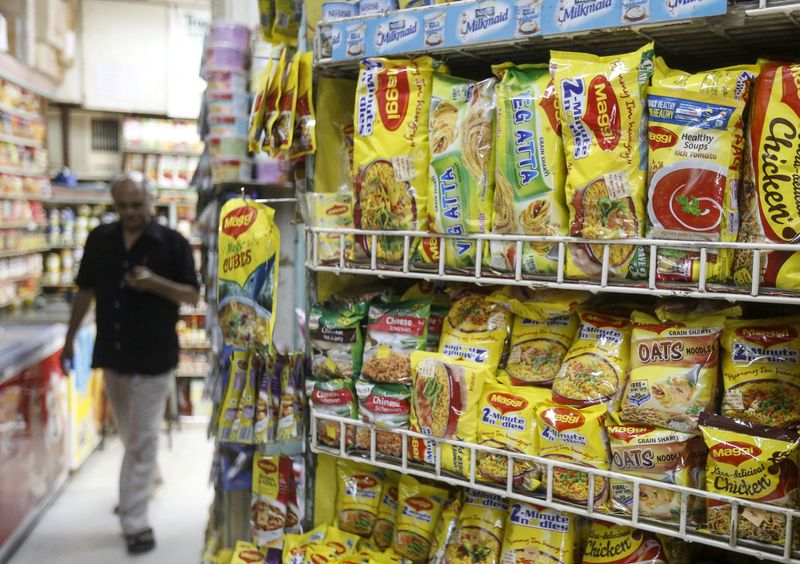By Jennifer Rigby
LONDON (Reuters) - The world’s biggest food and beverage companies on average sell products in low-income countries that are less healthy than what they sell in high-income countries, according to a new report.
Products sold by companies including Nestle (NS:NEST), Pepsico (NASDAQ:PEP) and Unilever (LON:ULVR) were assessed as part of a global index published by the Access to Nutrition Initiative (ATNI), its first since 2021.
The non-profit group found that across 30 companies, the products sold in low-income countries scored lower on a star rating system developed in Australia and New Zealand than those sold in high-income countries.
In the Health Star Rating system, products are ranked out of 5 on their healthiness, with 5 the best, and a score above 3.5 considered to be a healthier choice.
In low-income countries, the multinationals’ portfolios rated 1.8 on the system. In high-income countries, where more products were tested, they were 2.3.
“It’s a very clear picture that what these companies are selling in the poorest countries in the world, where they are more and more active, are not their healthier products,” said Mark Wijne, research director at ATNI, in an interview with Reuters.
“It’s a wake-up call for governments in these countries to be vigilant,” he added.
It is the first time the index has split the assessment into low and high-income countries.
ATNI said the index was important as packaged foods are increasingly playing a part in the obesity crisis that is now a global phenomenon. More than one billion people worldwide are living with obesity, according to the World Health Organization. The World Bank estimates that 70% of people who are overweight or obese live in low-and-middle-income countries.
"We have committed to grow our sales of more nutritious foods, as well as guiding people towards more balanced diets," a Nestle spokesperson said by email, adding that Nestle also fortifies products to help close nutrient gaps in developing countries.
A PepsiCo spokesperson declined to comment. The company last year set new goals to lower sodium in its potato chips and add ingredients like whole grains into its foods.
"We acknowledge that there is always more to do, both at a business and industry level," said Isabelle Esser, chief research, quality and food safety officer at Danone (EPA:DANO),, which was the best performer in the index.
ULVR: A Bull or Bear Market Play?
Don't miss out on the next big opportunity! Stay ahead of the curve with ProPicks – 6 model portfolios fueled by AI stock picks with a stellar performance this year..
In 2024 alone, ProPicks' AI identified 2 stocks that surged over 150%, 4 additional stocks that leaped over 30%, and 3 more that climbed over 25%. That's an impressive track record.
With portfolios tailored for Dow stocks, S&P stocks, Tech Stocks, and Mid Cap stocks, you can explore various wealth-building strategies.
So if ULVR is on your watchlist, it could be very wise to know whether or not it made the ProPicks lists.

